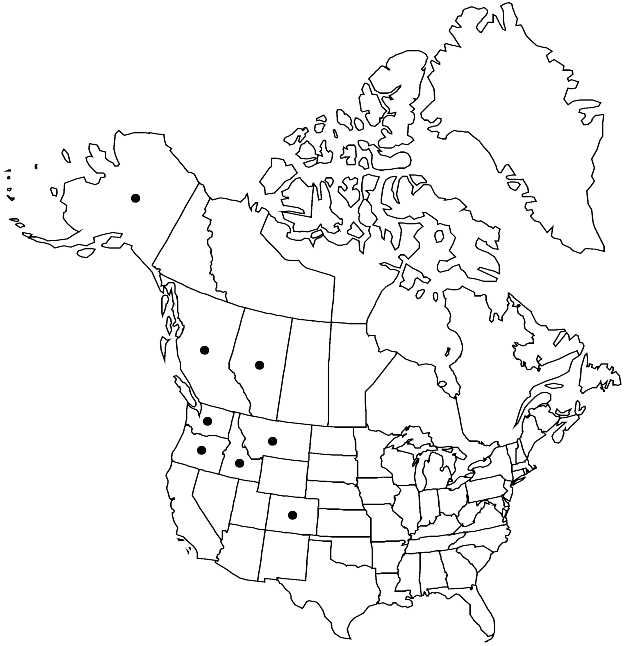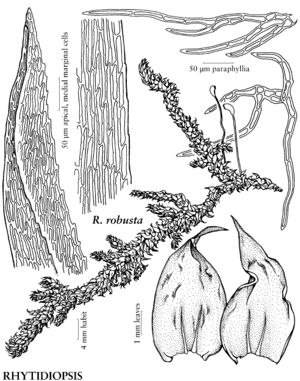Rhytidiopsis robusta
in H. G. A. Engler and K. Prantl, Nat. Pflanzenfam. 232/233[I,3]: 1057. 1908.
EndemicIllustrated
Basionym: Hypnum robustum Hooker Musci Exot. 2: plate 108. 1819 (as Hypnunum on plate)
Treatment appears in FNA Volume 28. Treatment on page 336.
Plants to 12 cm. Stems hooked at apices. Stem leaves 1.2–2.2 mm wide; alar cells shorter, wider than basal cells, 18–38 × 12–25 µm; medial laminal cells 40–90 × 5–9 µm. Branch leaves 2.2–4 × 0.9–1.3 mm. Seta 1.7–3 cm. Capsule arcuate when dry, ellipsoid when moist, 2–3.4 mm.
Habitat: Soil, litter, and rock in montane coniferous forests of Pacific Northwest, occasionally extending into alpine tundra
Elevation: moderate to high elevations (300-2500 m)
Distribution

Alta., B.C., Alaska, Colo., Idaho, Mont., Oreg., Wash.
Discussion
Plants of Rhytidiopsis robusta in subalpine forest and alpine tundra are generally smaller, with leaves 2.5–3.5 mm and leafy stems 3–4 mm wide.
Selected References
None.
Lower Taxa
None.
